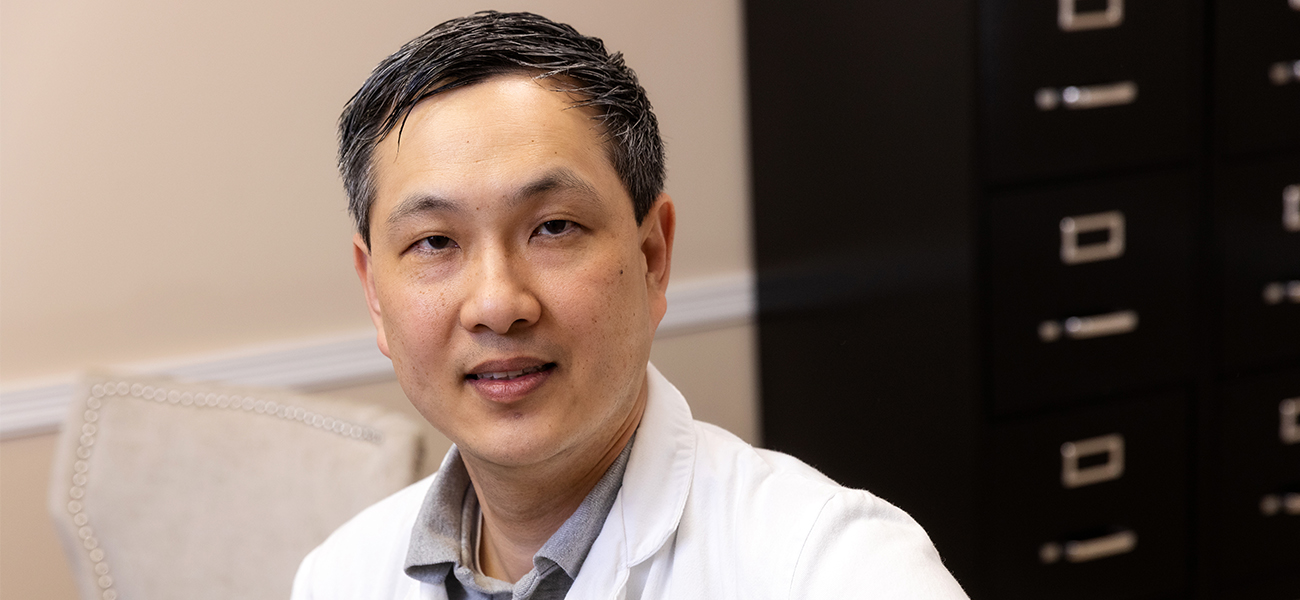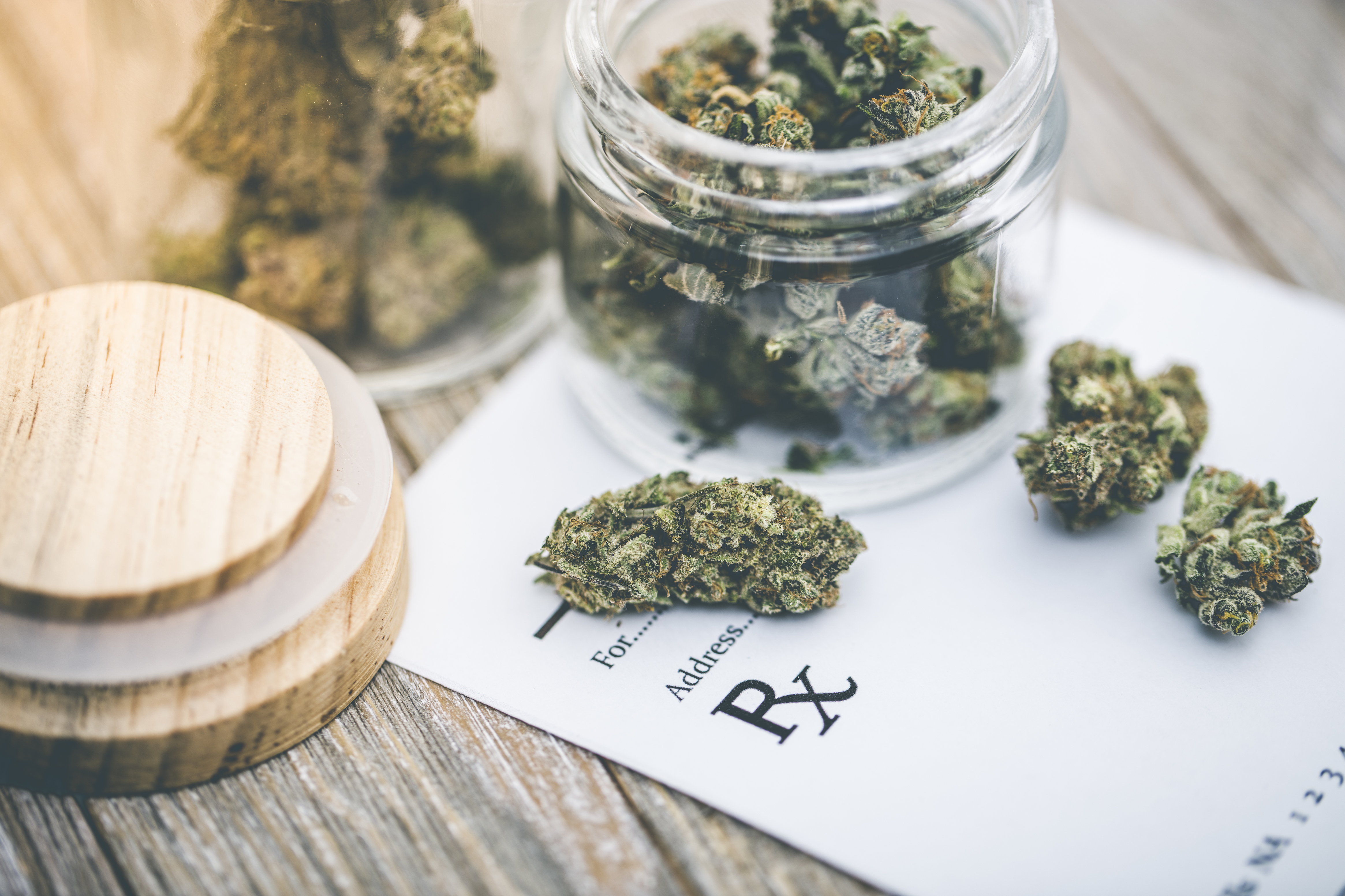
Even with no flashy medical marijuana signs, local clinics are adjusting to patient influx after last year’s state law changes
The first thing you notice when you pull up to the Medical Marijuana Clinic of Louisiana is that there’s not much to notice. Nestled off Sherwood Forest Boulevard on Bricksome Avenue, it sits across from an employment agency and an orthodontist’s office. Nearly all the buildings in this office park area look more like homes you would find in older Baton Rouge neighborhoods.
The décor inside is equally simple. There are chairs and a small flat-screen TV in the waiting room. The walls are bare except for a framed medical permit from the Louisiana Medical Board certifying Dr. Victor Chou to prescribe medical marijuana. Chou’s business cards and colorful flyers are stacked in a neat pile next to the TV.
The simplicity is strategic and intentional, Chou says.
|
|
“I don’t want people to get the wrong impression about medical marijuana or what we do here,” Chou says. “There are no flashy signs or medical leaf posters hanging up. We are set up like a doctor’s office, and we see this as a purely medical enterprise.”
Marijuana used for medical purposes was legalized in Louisiana in 2015, but it wasn’t legally dispensed in the state until last summer. Medical marijuana laws also allow for two growers in Louisiana: Southern University and LSU.
Chou, who runs the Medical Marijuana Clinic with his wife, does not dispense the drug. He consults patients and writes prescriptions for the medicine, which is then dispensed at nine pharmacies across the state, including one in Baton Rouge. Nearly 150 doctors across the state are licensed to recommend and prescribe the drug as of press time—24 of them are in East Baton Rouge Parish.
Chou, a Georgia native who has lived in Baton Rouge for 10 years, has been running the clinic for the last two years. During that time, he has seen about 700 patients.
Pre-coronavirus, he consulted eight patients per day and charges a $200 hourly consultation fee. Chou does not accept insurance—medical marijuana is not covered under insurance plans—and he doesn’t take walk-ins. He says 75% of his patients are referred to him by their primary care physicians, psychologists, neurologists and sometimes even pediatricians.
“About 5% of my population is kids,” Chou says. “Parents come to us when they have exhausted all other treatments for their children. This is not their first line of treatment. And I try not to promote this as a first line of treatment for anyone. Discussing medical marijuana is a comprehensive conversation.”
Chou says clients would typically meet with him in his office for about 60 minutes. His office is clean and minimal, just like his waiting room. A MacBook and a printer sit on the desk and two chairs sit across from him. During the consultation, he asks patients a lot of questions, including the location and severity of their symptoms, their daily lives, their families and their past usage of marijuana.
Medical marijuana can currently be prescribed to people with the following diagnosis and symptoms: cancer, HIV, AIDS, cachexia, wasting syndrome, muscular dystrophy, spasticity, multiple sclerosis, seizures, epilepsy, Crohn’s, Parkinson’s, PTSD, intractable pain, glaucoma, severe muscle spasms and autism.
Chou is hoping legislation is passed to include more symptoms, like generalized anxiety disorder and panic attack symptoms.
“I absolutely do believe the laws will change to expand these conditions that a lot of people suffer from,” Chou says. “We are learning a lot about patients’ needs when they come in for the consultation. This is a very individualized process.”
Medical marijuana is dispensed in a liquid dose of tincture with varying levels of THC, depending on what dosage is appropriate for each patient. Chou pulls an empty white box from a drawer in his desk to show what the bottle would look like. Inside is a 1-ounce amber glass bottle with a squeeze dropper. Patients pay between $100 and $200 for the bottles, depending on the percentage of THC prescribed.
While he is a firm believer that medicinal marijuana is safe and often effective in treating certain symptoms, he says it’s not a magic medicine.
“Just like any other medicine, some people have no response to medicinal marijuana, some people have some response, some have a great response,” Chou says. “One misconception is that people think it will cure everything.” choumd.com
Medical marijuana 101

• Clinics and designated physicians can recommend the drug to patients but don’t fill prescriptions.
• It is dispensed only through licensed pharmacies.
• In Louisiana, medical marijuana can only be distributed in tincture form with varying levels of THC depending on the prescribed dosage.
• LSU and Southern University are the only two Louisiana entities allowed to grow marijuana for medicinal purposes.
This article was originally published in the May 2020 issue of 225 Magazine.
|
|
|
